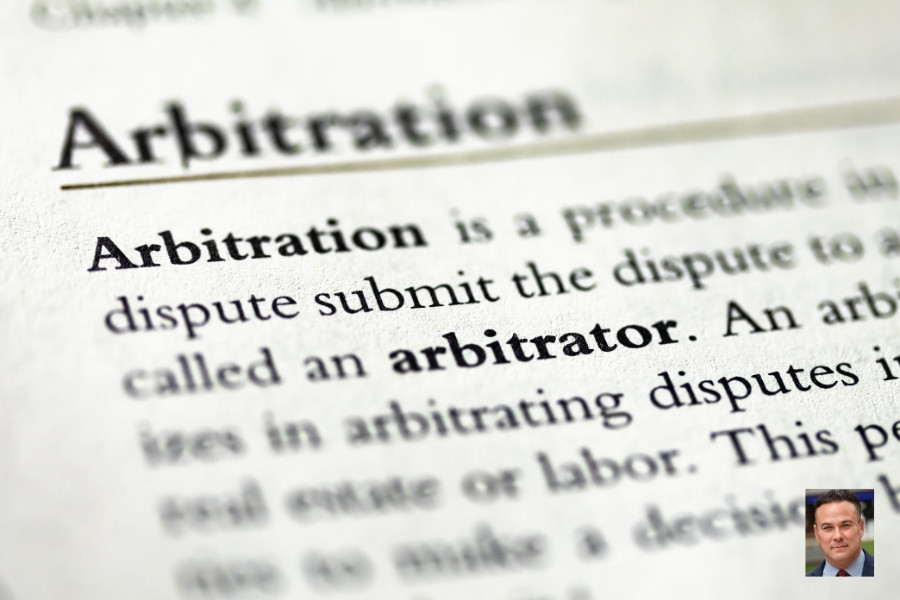A Neutral Process with Binding Results
Arbitration offers a private, structured way to resolve disputes outside of court. It is often faster and more cost-effective than litigation, while still resulting in a legally binding outcome. Unlike mediation, which depends on voluntary agreement, arbitration provides finality. Once a decision is made, it can be enforced just like a court judgment.
At Hodges Law Group, arbitration is approached with precision and impartiality. David Hodges ensures the process remains focused, fair, and efficient—helping parties avoid the long delays and high costs that often accompany trial. Arbitration can be especially beneficial when parties want to avoid extensive discovery, excessive pre-trial motions, or public exposure. For businesses or individuals seeking certainty and discretion, it provides both.
It also allows for a more tailored experience. Instead of navigating rigid court schedules, the process can be customized to fit the needs of the dispute. The result is a more efficient and controlled legal process that still produces a final, enforceable resolution.
Arbitration vs. Mediation: Understanding the Difference
While arbitration and mediation are both forms of alternative dispute resolution, they serve very different purposes. Mediation centers on collaboration. The goal is to reach a mutual agreement with the help of a neutral facilitator. Arbitration, on the other hand, results in a binding decision made by a neutral arbitrator based on the facts and applicable law.
This distinction is important. In arbitration:
- Each party presents arguments, evidence, and testimony
- The arbitrator weighs the case and issues a final ruling
- The decision is binding and enforceable in court
For parties looking for a decisive resolution without the rigidity of courtroom litigation, arbitration offers a practical alternative. It strikes a balance between formality and flexibility—structured enough to ensure fairness, but not so restrictive that progress is hindered by excessive legal procedure.
The Role of the Arbitrator
An arbitrator serves as a neutral decision-maker, much like a private judge. However, the setting is far less formal and the process is often more efficient. The arbitrator listens to evidence, evaluates legal arguments, and issues a ruling that is final and legally enforceable.
David Hodges approaches this role with discipline, focus, and respect for each side’s position. His job is not just to evaluate facts, but to apply the law fairly and clearly. He maintains order in the process while ensuring both sides have ample opportunity to be heard. He also narrows issues where possible, helping to streamline hearings and reduce unnecessary delay.
Unlike judges in overburdened court systems, David is able to give each matter the time and attention it deserves—often resulting in better-informed decisions delivered more quickly.
The Value of a Balanced Legal Background
What sets David Hodges apart is his dual perspective. Having served as both a plaintiffs’ lawyer and a defense attorney, he brings uncommon insight to each proceeding. He understands how both sides build their arguments, assess risk, and value resolution.
Many arbitrators come from a defense-oriented background. David’s experience on both sides of litigation allows him to evaluate each case with balance and fairness. He is not only familiar with the legal standards at play, but also with the business, personal, and strategic interests that often influence how parties engage in arbitration.
This well-rounded legal foundation allows him to issue rulings that are both grounded in law and attuned to real-world impacts—an important quality in matters where nuance and context can significantly affect outcome.
Areas Commonly Resolved Through Arbitration
David Hodges accepts arbitration appointments in a wide range of disputes. These include:
- Employment and Labor Matters: Arbitration is frequently used to resolve wrongful termination claims, collective bargaining disputes, and other employment contract disagreements. David ensures the process respects both worker protections and employer rights.
- Business and Contract Disputes: Arbitration is well-suited for resolving conflicts between business partners or vendors. David’s approach emphasizes practical solutions, minimizing operational disruptions while ensuring a fair outcome.
- Construction and Commercial Agreements: With current experience as General Counsel to a construction firm, David is equipped to handle cases involving project delays, cost overruns, contract breaches, and other complex industry issues.
These types of disputes benefit from David’s ability to manage detailed evidence, navigate multiple layers of liability, and issue rulings that reflect both legal and practical realities.
What Makes Arbitration Effective
The quality of an arbitration often hinges on the skill and neutrality of the arbitrator. David Hodges brings the discipline of a seasoned litigator and the mindset of a fair decision-maker. Parties who appear before him benefit from a process that is:
- Structured yet adaptable to the complexity of the dispute
- Respectful of each party’s time, resources, and legal standing
- Focused on clear, enforceable outcomes
He is especially skilled at managing proceedings that involve emotionally charged issues or long-term business relationships. David helps both sides keep their focus on resolution, not retaliation. When technical subjects or competing expert opinions arise, he is able to distill the key facts and apply the law efficiently and clearly.
When Arbitration is a Smart Choice
Arbitration may be the right approach when:
- There is a contractual requirement to arbitrate
- The parties seek a final, binding resolution
- Privacy is a priority
- Trial would be too costly or time-consuming
In addition, arbitration is often the best path for disputes that involve sensitive data, proprietary information, or reputational concerns. Unlike court, arbitration hearings are not part of the public record. For companies and individuals alike, this level of privacy can be essential.
It is also an effective option when parties have ongoing relationships they want to preserve—such as vendor contracts, partnerships, or intra-family business arrangements. Arbitration allows for firm decisions without the scorched-earth aftermath of prolonged litigation.
Start the Arbitration Process
If you are seeking a neutral, experienced arbitrator for an employment, business, personal injury, or civil matter, Hodges Law Group is ready to assist. David Hodges brings decades of legal experience from both sides of the courtroom—giving him the balanced perspective needed to manage arbitration effectively and fairly.
To schedule an arbitration or learn more about availability, call 281-485-4700 or email dhodges@dhodgeslaw.com. You may also submit a request through our Contact Page.







